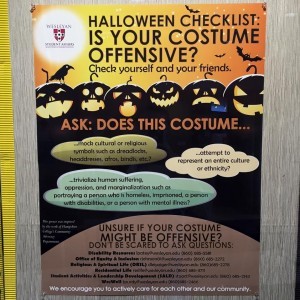Walter R. Jacobs's Blog, page 18
November 13, 2015
The Psychology of Lines
The Pacific Standard magazine has a short article about a book with a very intriguing title: Why Does the Other Line Always Move Faster? The Myths and Misery, Secrets and Psychology of Waiting in Line. I will have to add this book to my reading list, as I always end up in long lines, no matter what!
November 8, 2015
Social Science Research Used in Traffic School
After not completely stopping before making a right turn on red — what I’m told is called a “California Stop” — I had to sign up for online traffic school. The experience was not as bad as I feared, as students are allowed to proceed at their own pace, and there is no penalty for finishing earlier than anticipated. (When I took online training as part of new employee orientation here at SJSU, for example, one could not proceed from one section to the next until the time allocated for the section had expired, so lots of time was spent watching the counter count down.) Also, I was pleasantly surprised to see that social science research was cited. Here’s an example: “Different people have different beliefs about what causes road rage. A sociologist might say society as a whole has broken down and the values we shared have deteriorated. A psychologist might say vehicles provide drivers with a sense of power as well as anonymity, which can lead to road rage. If you ask traffic engineers they may claim lack of proper driving skills and driving at variable speeds leads to acts of road rage.”
Later in the section on road rage we get this: “Lack of respect for the law is another factor that encourages aggressive driving. The moral values of our society have changed over the years, and it has led to the growing lack of respect for law enforcement authorities. Many people believe factors like breaking down of the extended family, influence of media, and other aspects of modern society have led to this attitude toward the law and authority.” It would have been really nice if the authors had thrown in sources for further reading, but at least some basic information is presented. Hopefully some students will take the initiative to do additional research on their own!
Social Science Research used in Traffic School
After not completely stopping before making a right turn on red — what I’m told is called a “California Stop” — I had to sign up for online traffic school. The experience was not as bad as I feared, as students are allowed to proceed at their own pace, and there is no penalty for finishing earlier than anticipated. (When I took online training as part of new employee orientation here at SJSU, for example, one could not proceed from one section to the next until the time allocated for the section had expired, so lots of time was spent watching the counter count down.) Also, I was pleasantly surprised to see that social science research was cited. Here’s an example: “Different people have different beliefs about what causes road rage. A sociologist might say society as a whole has broken down and the values we shared have deteriorated. A psychologist might say vehicles provide drivers with a sense of power as well as anonymity, which can lead to road rage. If you ask traffic engineers they may claim lack of proper driving skills and driving at variable speeds leads to acts of road rage.”
Later in the section on road rage we get this: “Lack of respect for the law is another factor that encourages aggressive driving. The moral values of our society have changed over the years, and it has led to the growing lack of respect for law enforcement authorities. Many people believe factors like breaking down of the extended family, influence of media, and other aspects of modern society have led to this attitude toward the law and authority.” It would have been really nice if the authors had thrown in sources for further reading, but at least some basic information is presented. Hopefully some students will take the initiative to do additional research on their own!
November 3, 2015
Capitalism, Socialism, and Communism
Lots of folks don’t understand the nuances of capitalism, socialism, and communism. To better understand a comment Donald Trump made about Bernie Sanders being a “socialist-slash-communist,” a reporter asked a high school teacher and a university professor to explain the concepts. The university professor interviewed was the chairperson of SJSU’s Department of Political Science, Professor Lawrence Quill!
October 27, 2015
Campus Traditions
The Chronicle of Higher Education has an interesting new interactive feature: why campus traditions matter. I don’t remember any traditions quite like these at the two institutions I attended as a student, or at the two institutions of which I was an employee prior to coming to SJSU. Perhaps I’ll learn about some that exist here!
October 19, 2015
E-Portfolios
Inside Higher Ed is reporting that the California State University System has signed an agreement with a private company to make electronic portfolios (e-portfolios) available to its students and graduates. San Jose State is part of the CSU system, so I’ll have to keep an eye on this partnership as it rolls out. Any tool that helps students better highlight their accomplishments is something that we should encourage!
October 15, 2015
Halloween Costumes
Halloween is coming up in a couple of weeks, so student affairs offices around the country are gearing up warnings about offensive Halloween costumes. I really like Wesleyan U’s poster campaign:
My college has a tradition of holding a lunch hour Halloween party. I’m not worried about anyone showing up in inappropriate gear. I’ll go as Darth Vader, and a few others will dress up in Star Wars costumes. I expect Boba Fett to make an appearance, along with at least two stormtroopers. Should be a fun event!
October 8, 2015
Working with Student Researchers
In a recent Chronicle of Higher Education article, sociologist Patricia Leavy argues, “let’s give student researchers the credit they deserve.” She notes,
Just as college students often serve as research samples because they are convenient populations for academic researchers, so too do students routinely serve as research assistants and co-authors. Credit and compensation is typically attributed to student collaborators based on individual negotiations with faculty mentors. In other words, whether the student is listed as a research assistant or a co-author, whether the student is listed as the lead author or a secondary author, or how the student’s contribution is both defined and monetarily compensated (especially with a work such as a book) is based on whatever arrangement the student strikes with the researcher (who is usually the student’s professor)…
Credit and compensation should be based on the level of collaboration and how much each collaborator has contributed to the final product; it should not be based on career level. It really is that simple.
Indeed!
October 2, 2015
Free-Range Children in Japan
The Atlantic‘s CityLab website has an interesting article: “Why Are Little Kids in Japan So Independent?” Here in the Unites States some call children who are allowed to travel and/or play without much adult supervision “free-range kids.” As a child growing up in the 1970s I remember a time when “free-range kids” were just “kids.” I wonder if the U.S. can ever return to that state…
September 30, 2015
Learning Through Friendship
One of my former colleagues in the University of Wisconsin system has posted an interesting article to the Association of American Colleges & Universities’ (AAC&U) LEAP Challenge Blog. Check out his “Learning Through Friendship” reflection. LEAP, by the way, stands for Liberal Education and America’s Promise, an AAC&U national public advocacy and campus action initiative. I should think more about how I can use LEAP in strategic planning for the college.




